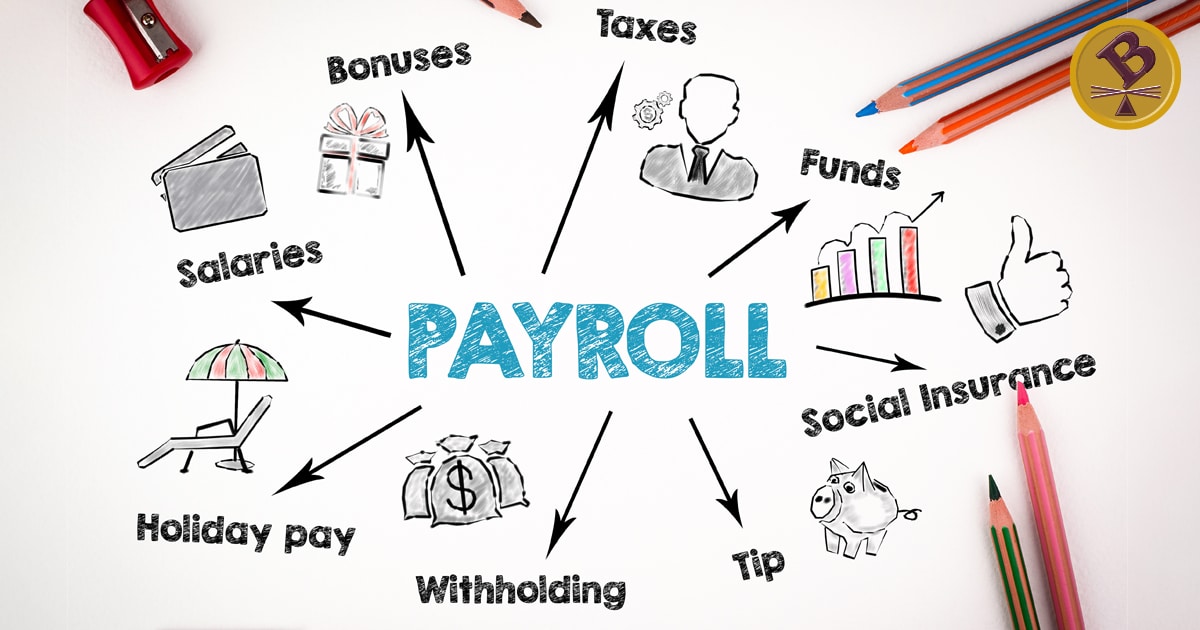A payroll tax is a tax an employer deducts from the paychecks of his or her employees to pay to the IRS on the employee’s behalf. This tax is generally applied to wages, salaries, and tips received by the worker. Once deducted, the taxes are paid directly to the Internal Revenue Service (IRS) via the employer.
Payroll taxes (and taxes in general) are strictly enforced, and as such, there are specific rules set forth by the IRS as far as how much to deduct, how much to pay, when payment to the IRS should occur, and what will occur should you fail to adhere to these rules.
It is advisable if you are a small business that you enlist the help of a professional accountant or CPA in order to ensure that you are adhering to the aforementioned rules. This way, you can avoid the often steep penalties incurred for failing to do so.
It’s important to examine what payroll taxes are, who is required to pay them, how they should be paid, and what will happen should you fail to do any of the above.
What is Payroll Tax?
Payroll taxes are the taxes an employer is required to deduct each time he or she pays an employee. These taxes are separated into two categories: employer contribution and employee contribution.
These contribution categories essentially mean that for whatever amount that is deducted from the paycheck of the worker, it must also be deducted from the business’s profits. Both of these portions must then be paid together through the IRS’s website (a process that will be outlined in further detail).

Both Medicare and Social Security tax portions are a flat rate and don’t vary. Medicare is taxed at 1.45%, while Social Security is taxed at 6.2%.
Federal income tax is slightly more complicated, as it depends on the employee. Lots of things can affect this, such as age, filing status, and individual tax allowances. There isn’t necessarily a cut-and-dry formula for determining this number, but this free tax calculator from OnPay should help.
Once you know the dollar amount required to be deducted from your employee, you can take it directly from their paycheck and match the amount using your business’s income.
Who is Required to Pay Payroll Tax?
In short, if you have employees, you need to pay payroll tax. During the hiring process, you should have your employees fill out a W-4 form that will tell you the information you need to determine how much Federal Income Tax to take out of each paycheck.
This should be done for every employee, provided you are a legitimate business (i.e., you have a business license and are selling licensed goods or services). Failure to do this can result in heavy fines for your business.
There is one notable exception for this required tax, however. Employers are not required to pay out taxes for independent contractors, as contractors handle their own taxes and pay both the employee and employer portions themselves.
To determine whether a worker is an employee or an independent contractor, there are a few different questions you can ask.
First, does the company determine how the worker performs their job? For an employee, the answer to this question would be yes, as companies have a right to manage and control the process in which any given task is accomplished. For independent contractors, this is not always the case.
The second question that should be asked is: Is there a written contract regarding vacation and benefits between the employer and the employee?
For employees, there are certain governmental provisions that protect them and require businesses and corporations to provide benefits and vacation time depending on their full-time status. For independent contractors, these provisions do not apply due to the arrangement being short-term and not permanent.
The last question to ask is whether the established working relationship will continue. Contractors are defined as short-term hires who control their own rate of pay and benefits. As such, if a worker is determined to be short-term and their job is not a key aspect of the company, they will usually be defined as being an independent contractor.
How Do I Pay My Payroll Taxes?
The first thing you need to do in this regard is to determine how often you are required to deposit payroll taxes. For this, there are two different options: monthly and semi-weekly.
To determine this, you need to begin by finding the look-back period. This is because the IRS estimates throughout the year how much you are likely to owe at the end based on the amount of tax liability from your past.
The IRS determines your deposit schedule based on your FICA tax liability from the previous look-back period, which is the former 12-month period that ended on June 30th.
For example, the look-back period of 2020 would be the 12-month period ending on June 30th of 2019.
You then look at this period to determine the amount of tax liability incurred during that time period. If your total tax liability is less than $50,000, you are a monthly depositor. If it was more than $50,000, you are semi-weekly.
For monthly depositors, tax contributions must be made by the 15th day of the month after payroll. For example, the amount of taxes withheld through the month of September must be paid by the 15th of October.
If you are semi-weekly, your options are a bit different. If your payroll is paid out on Saturday, Sunday, Monday, or Tuesday, you are required to pay your taxes by the following Friday.
However, if your wages are paid on any other weekday (Wednesday, Thursday, or Friday), you must pay them in by the following Wednesday.
Additionally, before actually depositing said taxes (or at the time you deposit them – either one is acceptable), you must fill out the required forms for the IRS to indicate how much you are paying and why.
These forms include IRS Forms 940, 941, and 944 and can be found on the IRS website. You can file these on paper or through e-file; e-file to be much easier.
It is also important to note you can pay payroll taxes by mailing in your contribution with IRS Form 941 if your total tax liability is less than $2,500. Otherwise, all tax deposits must be made through the IRS EFTPS system.
What Happens if I Forget to Pay Them?

Should you fail to respond to the first notice, the IRS will send one more before beginning collection efforts.
Once collection efforts have begun, and the IRS determines you to be the responsible party, they will issue you a Trust Fund Recovery Penalty.
This penalty is steep and is equal to 100% of the unpaid tax debt. In short, if you owed the IRS $10,000 in taxes for the quarter, you now owe $10,000 in taxes plus $10,000 in penalties, bringing the total you are now responsible for to $20,000.
Additionally, if the IRS determines your failure to pay taxes is an act of tax evasion, you could be held criminally liable. Typically, the penalty for criminal tax evasion is a maximum fine of $500,000 and up to five years in prison.
Conclusion
Payroll taxes can be complicated and difficult to deal with. They can seem impossible to keep up with at times.
Luckily, there are programs out there specifically designed to help you manage and keep up with your payroll taxes.
Even with all the tools and information provided, payroll taxes can be confusing. They are difficult to understand, and there are tons of forms, dates, and calculations you have to remember in order to successfully make it through the quarter.
Luckily, you can further help yourself through the process by making sure you hire the correct tax representative to walk you through these payments.
At Borshoff consulting, we do in-depth tax consultations for businesses to ensure you don’t rack up more tax penalties than profits this year. When you hire us, you can set your IRS worries aside and let us handle the complicated nuances that make payroll taxes so difficult to deal with.
What’s even better is we specialize in the art and science of payroll tax, so we know the ins and outs of this complicated topic! Be sure to get in touch with us today, so we can find out how we can best serve your needs!
Let Indiana’s tax expert steer you in the right direction so you can focus on what you do best – running a successful business.





